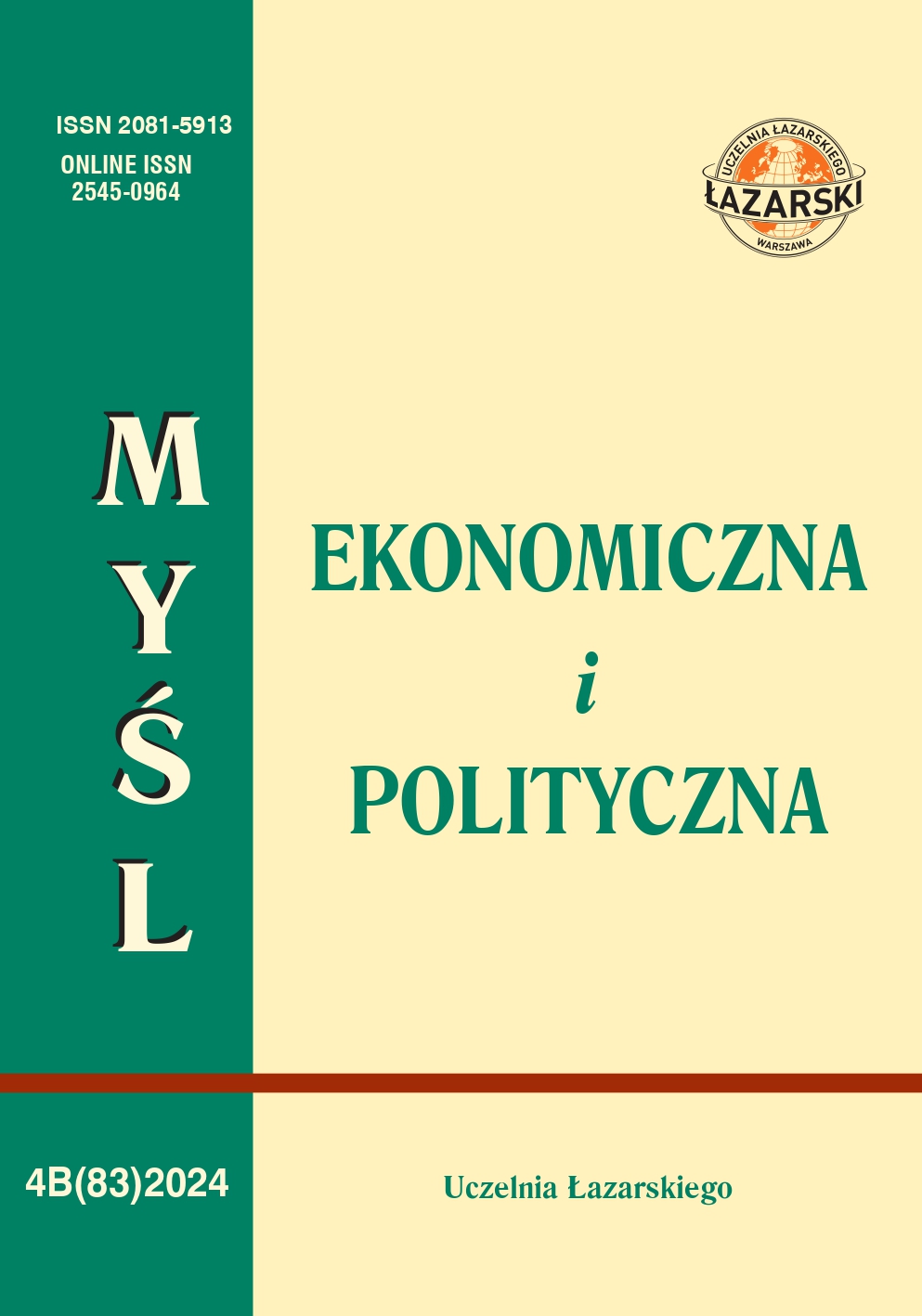Abstract
The article examines the challenges and threats to Germany’s internal security related to migration and immigration, as well as the actions taken by the German government in response to these challenges. In recent years, Germany, one of the main destination countries for migrants from regions affected by conflicts and economic crises, has faced increasing challenges in the field of border protection, crisis management and social integration. The aim of the article is a multi‑aspect analysis of the issue of migration and immigration from a security perspective, taking into account both the socio‑economic and geopolitical aspects that contemporary Europe is facing. The work carried out a detailed analysis of scientific literature, government documents, public reports and statistical data to present a wide range of issues and challenges related to migration. The article discusses the main directions of German migration policy, preventive measures and integration strategies, as well as activities undertaken in the field of international cooperation and within the European Union. In addition, a case study method was used to illustrate specific situations that triggered a particular social and governmental response and to assess the effectiveness of policies implemented in Germany. The research results indicate that migration is a source of both economic opportunities and threats for Germany, which may manifest themselves in increased social tensions, the risk of radicalization and an increase in crime. Effective integration actions and cooperation at European level are key to minimizing the negative effects of migration and promoting social stability. At the end of the article, recommendations are presented that can support Germany in further developing its migration policy, which is a model for other countries, including Poland. Adapting these solutions can also bring significant benefits at the national level.

This work is licensed under a Creative Commons Attribution-NonCommercial-ShareAlike 4.0 International License.
Copyright (c) 2025 Lazarski University
